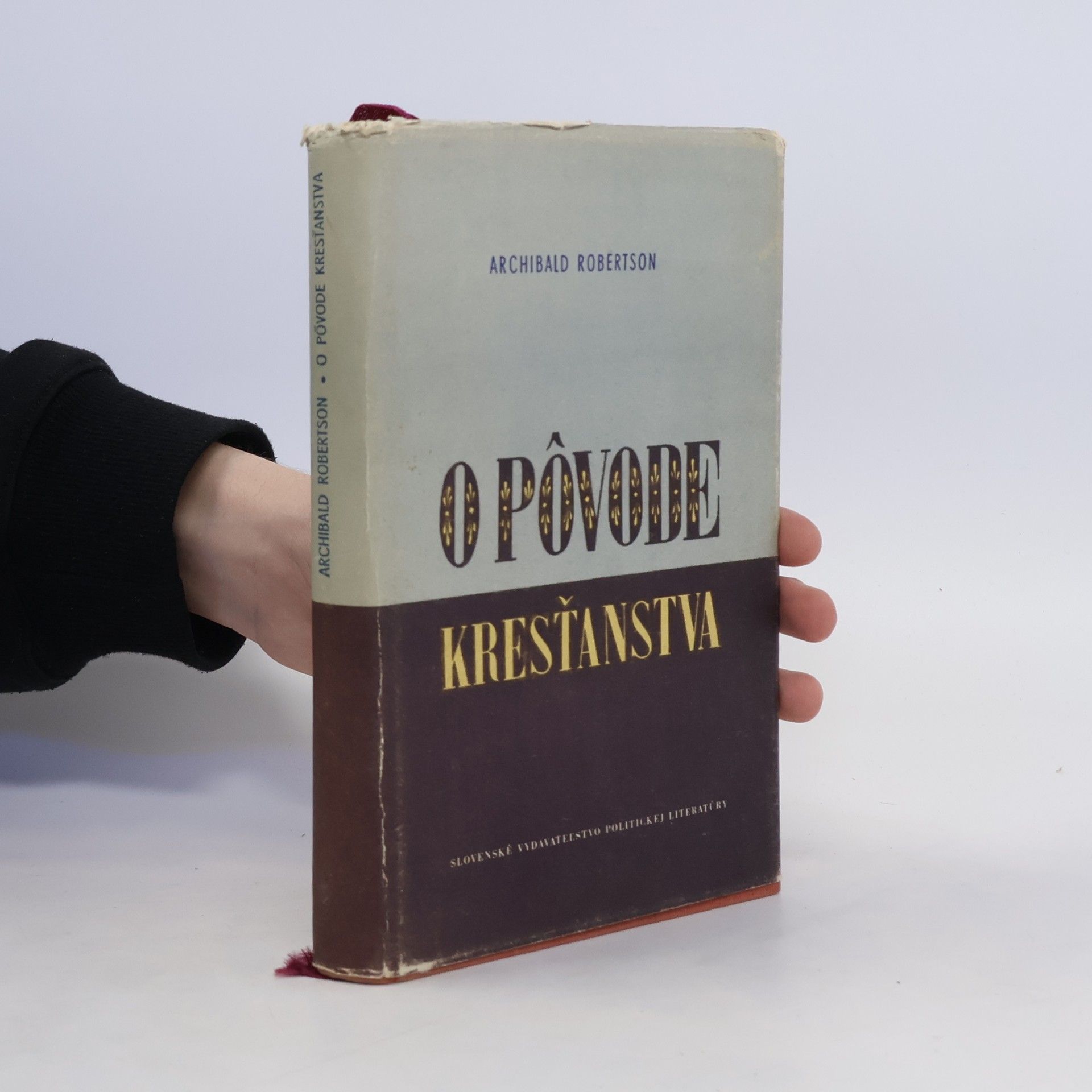A. T. Robertson Book order (chronological)
Archibald Thomas Robertson was a lifelong adherent of the Baptist Church and a theologian dedicated to the study and teaching of the New Testament. His work is characterized by a deep interest in the historical and cultural context of early Christian texts, emphasizing the practical application of biblical principles in the lives of believers. Robertson's writings explore the origins and development of early Christianity, focusing on linguistic nuances and theological significance.
